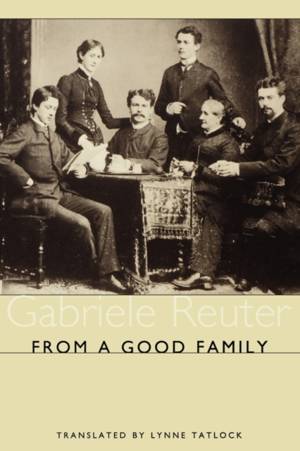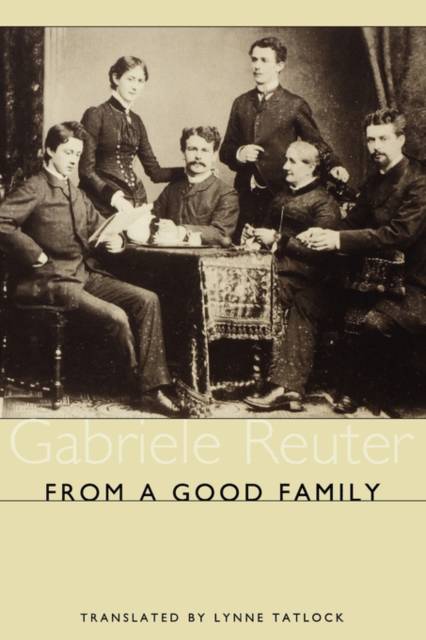
- Afhalen na 1 uur in een winkel met voorraad
- Gratis thuislevering in België vanaf € 30
- Ruim aanbod met 7 miljoen producten
- Afhalen na 1 uur in een winkel met voorraad
- Gratis thuislevering in België vanaf € 30
- Ruim aanbod met 7 miljoen producten
Zoeken
Omschrijving
Upon publication in 1895, Gabriele Reuter's From a Good Family (Aus guter Familie) became something of a cultural event, making its author one of Germany's most talked-about women of letters. Set in the first two decades of the Second German Reich, this story of a Prussian bureaucrat's daughter caught between conformity and rebellion struck at the core of the class that upheld the empire, revealing the hypocrisy and misery at the very heart of the bourgeois family. It recorded the conflicted and ultimately interminable adolescence of a middle-class girl who failed to fulfill the destiny prescribed for her by her gender and class, a young woman who, despite an incipient high-spiritedness and independence of mind, internalized the attitudes of her culture to the point of lethal self-censorship. Gabriele Reuter (1859-1941) began writing in her teens but did not experience a literary and commercial breakthrough until the publication of From a Good Family in 1895. This success enabled her finally to live as a freelance writer. In addition to a string of popular novels she wrote essays and sketches for German and Austrian newspapers; in the 1920s and 1930s she regularly reviewed German books for the New York Times.
Specificaties
Betrokkenen
- Auteur(s):
- Vertaler(s):
- Uitgeverij:
Inhoud
- Aantal bladzijden:
- 268
- Taal:
- Engels
- Reeks:
- Reeksnummer:
- nr. 51
Eigenschappen
- Productcode (EAN):
- 9781571134066
- Verschijningsdatum:
- 1/12/2009
- Uitvoering:
- Paperback
- Formaat:
- Trade paperback (VS)
- Afmetingen:
- 152 mm x 229 mm
- Gewicht:
- 399 g

Alleen bij Standaard Boekhandel
+ 122 punten op je klantenkaart van Standaard Boekhandel
Beoordelingen
We publiceren alleen reviews die voldoen aan de voorwaarden voor reviews. Bekijk onze voorwaarden voor reviews.








